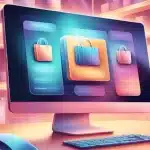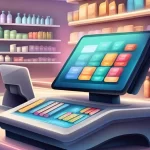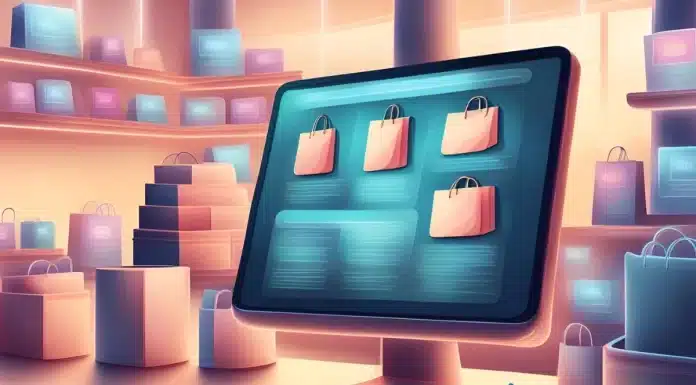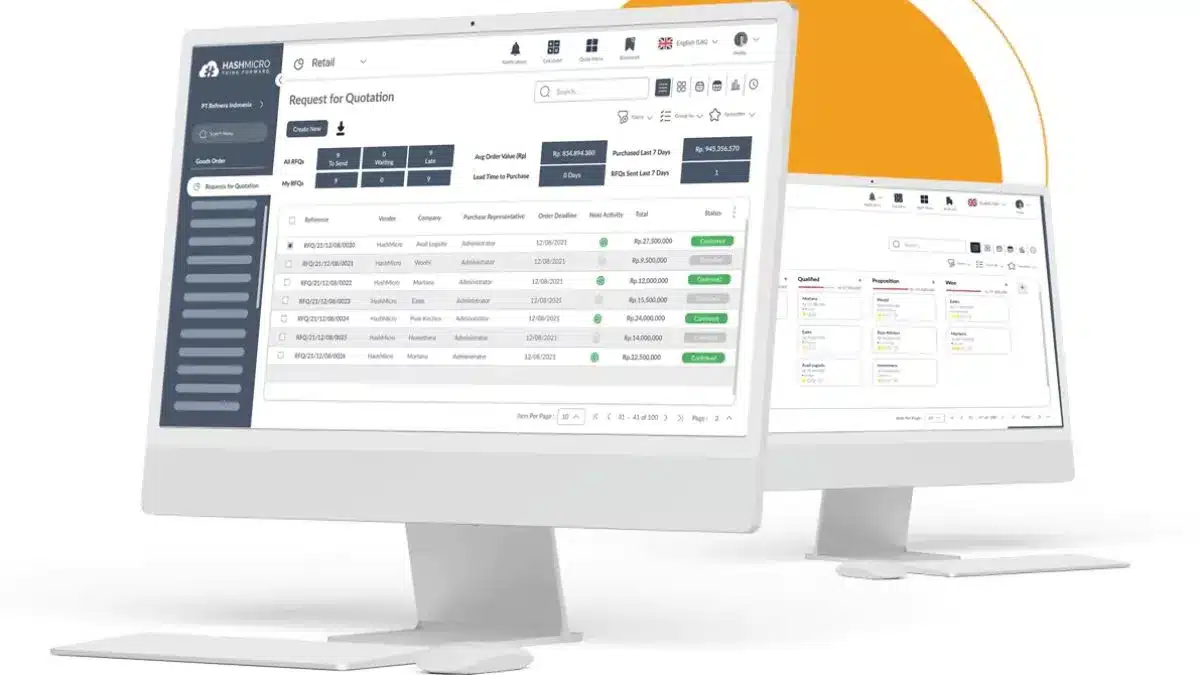A retail management system (RMS) is essential for keeping retail operations running smoothly, but without the right one, running a store feels like restocking in the dark. Inventory data becomes scattered, and customer insights become difficult to track.
With the Philippines’ retail market continuing to grow due to improving inflation, modernizing your operations is more important than ever. Businesses that rely on outdated tools risk falling behind competitors who already use automated retail solutions.
That’s why HashMicro Retail Software is worth considering. It helps you manage inventory, unify multi-branch sales, understand customer behavior, and make smarter, real-time decisions. Try the free demo now.
Key Takeaways
|
Table of Contents
What is Retail Management System?
A retail management system is a software to streamline various aspects of retail operations. It integrates functions such as POS tools for sales processing, inventory management, customer relationship management (CRM), and retail accounting into a single platform, helping retailers manage their business
Moreover, with real-time data and analytics at your fingertips, you can make informed decisions, optimize stock levels, and enhance operational efficiency. By automating routine tasks like inventory tracking, reordering, and sales reporting, you minimize the risk of human error. This automation also frees up valuable time, allowing your team to focus on more strategic activities that drive your business forward.
Benefits of Retail Management System
Implementing a retail management system offers numerous advantages that can significantly enhance retail operations and profitability. Here are the key benefits you can expect:
- Increase business profitability
- Reduce storage costs
- Enables real-time stock tracking
- Automates the reorder process
- Omnichannel and e-commerce integration
- Provides insights into inventory turnover rates
- Helps maintain optimal stock levels
- Handles invoices and orders automatically
Ultimately, retail systems are of utmost importance to stores in the Philippines. It improves how well you work and how much you make. Using this technology can make your store a winner in the market.
The Importance of a Retail Management System
A retail management system is more than just a tool for processing sales. It plays a crucial role in streamlining operations and enhancing overall business performance.
Here are the key reasons why a retail management system is essential:
- Efficient inventory management: A retail management system provides real-time tracking of inventory levels, helping you avoid stockouts and overstocking.
- Enhanced customer experience: By centralizing customer data, the system allows you to understand buying patterns and preferences.
- Streamlined operations and productivity: Automating routine tasks such as sales reporting, employee scheduling, and order processing reduces manual work and minimizes human error.
- Data driven decision making: With comprehensive analytics and reporting features, a retail management system provides valuable insights into sales trends and customer behavior.
- Improved security and accuracy: By managing transactions and sensitive data in a secure digital environment, a retail management system reduces the risk of theft and fraud.
Signs that Your Business Needs Retail Management System
Many signs indicate that your retail business needs a retail management system when it comes to running it. Here are some signs that your business does need help or business software solutions in its operational management.
1. Inefficient inventory management
This software provides real-time inventory tracking, automated reordering, and accurate stock level management, ensuring you have the right products available when needed and minimizing inventory costs.
2. Manual data entry errors
These errors can lead to discrepancies in records, misinformed decisions, and a loss of customer trust. This software automates data entry, significantly reducing errors and ensuring accurate.
3. Difficulty in managing multiple sales channels
If you struggle to synchronize these channels, retail management with omnichannel capabilities can integrate all sales channels seamlessly, ensuring consistent inventory levels, pricing, and a unified customer experience.
4. Lack of real-time data and insights
Making informed decisions requires access to real-time data and insights. If you find it challenging to gather and analyze data quickly, retail management software can help. With real-time reporting and analytics, you can monitor sales performance and track inventory.
5. Inconsistent financial records
This software, with integrated financial management, streamlines accounting processes, ensures accurate record-keeping, and provides a clear view of your business’s financial health, helping you maintain compliance and make informed financial decisions.
How the Retail Management System Works
Understanding how a retail management system works can help you maximize its benefits and streamline your business operations. Here’s how it functions:
- Inventory management: The system automatically tracks inventory levels in real time, alerting you when stock is low and suggesting reorder quantities. This helps prevent stockouts and overstocking, ensuring optimal inventory levels.
- Sales processing: It streamlines sales transactions by integrating point-of-sale (POS) systems, enabling quick, accurate checkouts. The system also records sales data, which can be analyzed to identify trends and improve sales strategies.
- Customer Relationship Management (CRM): The system collects and stores customer data, including purchase history and preferences. This information allows you to personalize marketing campaigns and enhance customer loyalty.
Who Can Use the Retail Management System
A retail management system is a versatile solution designed to meet the needs of various businesses in the retail industry. Here are the key users who can benefit from this system:
- Employees:
- Sales Associates and Cashiers use the RMS to process transactions, manage customer inquiries, and handle returns or exchanges seamlessly.
- Inventory Staff track stock levels, update product information, and reorder supplies as needed, ensuring shelves are always stocked.
- Managers:
- Store Managers oversee daily operations, monitor sales performance, and manage staff schedules through the RMS.
- Inventory Managers use the system to analyze stock trends, optimize inventory levels, and reduce holding costs.
- Owners:
- Business Owners gain comprehensive insights into overall business performance, including sales data, financial reports, and operational metrics. They use the RMS to make strategic decisions, plan expansions, and identify areas for improvement.
- Marketers:
- Marketing Teams leverage customer data from the RMS to create targeted marketing campaigns, personalize promotions, and enhance customer engagement. They analyze purchasing patterns to develop strategies that drive sales and build brand loyalty.
- Merchandisers:
- Merchandisers utilize the RMS to plan product placements, track inventory turnover, and ensure that the right products are available at the right time. They analyze sales trends to optimize product assortments and maximize profitability.
- Vendors: Suppliers and Vendors interact with the RMS to manage orders, track delivery statuses, and ensure timely replenishment of products. They use the system to coordinate with retailers, maintain accurate inventory levels, and streamline the supply chain process.
By catering to the needs of these diverse roles, a Retail Management System enhances collaboration, improves operational efficiency, and drives business growth.
What Features of Retail Management Systems Should You Look for?
Choosing a retail management system for your business in the Philippines is important. You should focus on features that bring the most value. Knowing the key features will help you select the right system.
1. Point of Sale (POS)
A critical feature of any retail management system is the POS system for grocery store, which facilitates smooth and efficient transaction processing. It should support multiple payment methods and offer quick checkouts.
The right POS for business types, such as POS system for retail, fruit store, etc. will help you monitor all the branches centrally, allowing you to see each branch’s performance and sales easily.
2. Inventory Management
Effective inventory management is essential for maintaining optimal stock levels and preventing stockouts or overstock situations. Look for features like real-time stock tracking, automatic reordering, and detailed inventory reports.
3. Customer Relationship Management (CRM)
A built-in CRM module helps manage customer interactions, preferences, and purchase history. It should enable personalized marketing campaigns, loyalty programs, and targeted promotions.
4. Omnichannel Integration
Omnichannel retail support is essential in today’s market. The system must seamlessly integrate with various sales channels, including physical stores, online stores, and marketplaces.
5. Procurement Automation
Procurement automation is another important feature of retail management software, designed to streamline and optimize the purchasing process. It automates various procurement tasks, including creating purchase orders and handling invoices.
6. Real-time Reporting and Analytics
Comprehensive reporting and analytics capabilities provide insights into sales and financial performance. Look for customizable reports that offer detailed, actionable insights to help you improve business performance.
7. Financial Management
An integrated financial management module streamlines accounting processes, including accounts payable and financial reporting. This feature helps maintain accurate financial records and ensures compliance with accounting standards.
After learning about the features of Retail Management System, you can start considering ERP software from HashMicro by clicking the banner below.

Common Challenges in Implementing a Retail Management System
While a retail management system offers numerous benefits, implementing it can come with certain challenges. Being aware of these obstacles can help you better prepare and ensure a smoother transition. Here are some common challenges in implementing a retail management system:
- High initial investment costs: Setting up a retail management system often requires significant upfront costs for software, hardware, and training. This can be a financial burden for small to medium-sized businesses. However, the long-term benefits usually justify the initial investment.
- Complex integration with existing systems: Integrating the new system with existing software or legacy systems can be complex and time-consuming. Compatibility issues may arise, leading to disruptions in daily operations if not managed properly.
- Employee resistance and training needs: Employees may resist adopting new technology due to fear of change or lack of familiarity. Providing adequate training and support is essential to ensure a smooth transition and encourage user acceptance.
- Data security and privacy concerns: With the increasing amount of customer data being processed, ensuring data security and compliance with privacy regulations is a significant challenge. Implementing robust cybersecurity measures is crucial to protect sensitive information.
Tips to Choose the Right Retail Management System
Choosing the right retail management system is crucial to your business’s success. An ideal retail management system can help optimize operations, improve efficiency, and provide deep insights for better decision-making.
Here are some important tips that can help you choose the most suitable retail management system for your business:
1. Evaluate your business needs
Start by identifying your business’s specific needs and challenges. Determine which features are essential for your operations, such as inventory management, sales tracking, customer relationship management (CRM), or multi-channel support.
2. Consider integration capabilities
Ensure the retail management system you choose can integrate seamlessly with your existing systems, such as retail accounting software, e-commerce platforms, and payment gateways.
3. Review cost and ROI
Consider the total cost of ownership, including initial setup, licensing, maintenance, and potential upgrade fees. Compare these costs with the potential return on investment (ROI) the system offers through improved efficiency and enhanced sales.
4. Check for scalability
Choose a system that can grow with your business. Scalability is crucial as your business expands, whether through increased locations, product lines, or transaction volume.
5. Look for robust reporting and analytics
Comprehensive reporting and analytics capabilities are vital for making informed decisions. Ensure the retail management system offers real-time data access, customizable reports, and detailed sales and customer behavior analytics.
6. Assess vendor support and training
Search for a system from a vendor that provides excellent customer support and training. Reliable support ensures that issues are quickly resolved, while comprehensive training helps your staff make the most of the system’s features.
7. Evaluate security features
Data security is paramount, especially when handling sensitive customer and business information. Ensure the software includes robust security measures such as data encryption and regular security updates.
HashMicro Retail Management Software as a Comprehensive Solution
HashMicro is an ERP solution provider known for its standardized systems and commitment to delivering high-quality solutions. Trusted by over 1,750 clients, it proves the credibility and effectiveness of HashMicro Retail Management Software in meeting diverse business needs.
The software encompasses end-to-end business processes and provides a wide range of features to streamline operations. HashMicro retail management software offers comprehensive features such as:
- Stock optimization: the integrated software will automatically manage and optimize inventory levels to prevent overstocking and stock-outs.
- Integration to Marketplaces: The retail management software will also connect with various selling platforms, such as Tokopedia, Lazada, and Shopee, to sync inventory and orders.
- Centralized Multi-Branch POS: HashMicro retail management software can manage sales and operations across multiple branches from one centralized system.
- Loyalty Points Management: The software can also track and manage customer loyalty points to increase customer retention and repeat purchases.
- Automatic Reconciliation to Bank: You can automate financial settlement and reconciliation with banks, minimizing manual errors.
- Omnichannel Integration: the software can integrate with e-commerce platforms and marketplaces for a seamless omnichannel retail experience.
- Integrated with Barcode and RFID: HashMicro also supports barcode and RFID technologies for efficiently tracking and managing inventory and assets.
Moreover, HashMicro’s retail management software boasts integration capabilities, seamlessly connecting with other business systems and applications such as CRM, inventory, accounting, and HRM.
Featuring comprehensive functionality and high adaptability, HashMicro enables businesses to boost productivity and competitiveness in a dynamic market, ensuring effective and precise corporate financial management.
Conclusion
In today’s competitive global market, retail management software is essential for business owners in the Philippines. The software streamlines various retail operations, from inventory and sales tracking to customer relationship management and financial reporting.
One of the Philippines’ best retail management software providers is HashMicro, which offers all its advantages. HashMicro offers a complete retail ERP solution that covers all the essential features of business operations.
HashMicro Retail Software enables businesses to improve stock control and maximize procurement efficiency, customer management, and unique loyalty programs, confidently driving business growth.
Find out how HashMicro software can revolutionize your retail management process, and try out the free demo now!

Frequently Asked Questions
-
What is retail order management system?
A retail order management system helps businesses track orders from creation to delivery. It manages inventory, customer data, shipping, and invoicing, ensuring that orders are fulfilled accurately and efficiently.
-
What does retail management system do?
A retail management system streamlines operations by integrating inventory, sales, CRM, and POS processes, reducing errors and improving efficiency. It provides a comprehensive view of business activities, helping retailers manage daily tasks smoothly.
-
What is the main objective of retail management?
The main objective of retail management is to enhance customer satisfaction by ensuring products are available at the right place, time, and price. It aims to optimize store operations, increase sales, and improve overall business efficiency.
-
What is the retail management system?
A retail management system (RMS) is an integrated software solution designed to optimize retail business operations, such as sales tracking, inventory management, and customer relationship management (CRM). For small businesses, open source retail management systems are often a cost-effective option, offering customizable features for unique needs and enabling businesses to manage projects efficiently.
-
What is an example of retail management?
An example of retail management is a small grocery store using an open source point-of-sale (POS) system to track daily sales, manage inventory, and monitor customer behavior. For small businesses, such systems provide a budget-friendly solution to streamline operations, such as managing seasonal promotions or specific sales projects.
-
What is the function of retail management?
The primary function of retail management is to ensure smooth store operations by managing inventory, enhancing customer satisfaction, and driving sales performance. For small businesses, open source retail management systems can support scalable projects, allowing them to adapt quickly to changing customer needs while staying cost-effective.





















